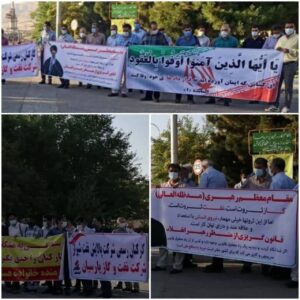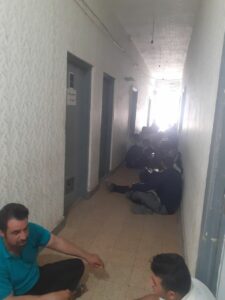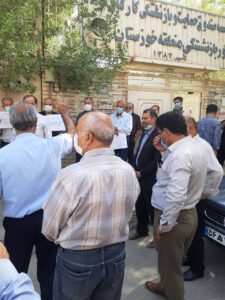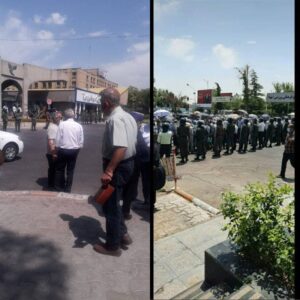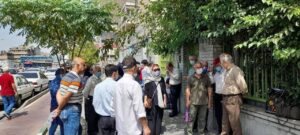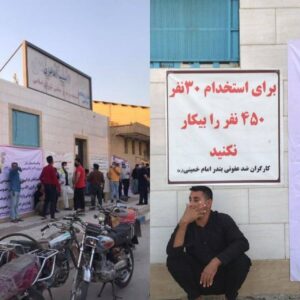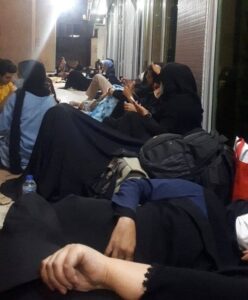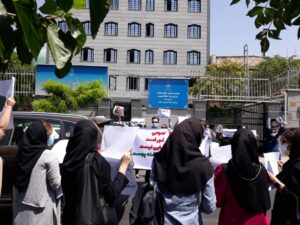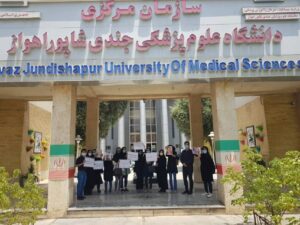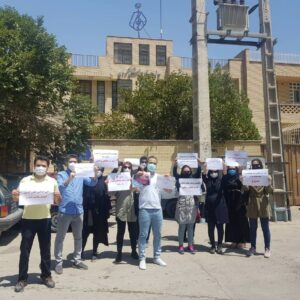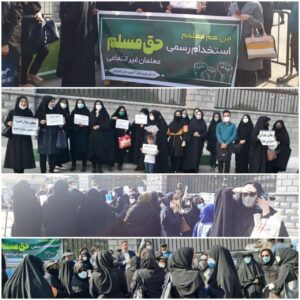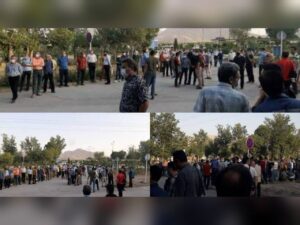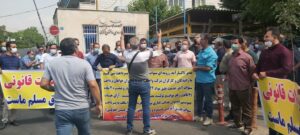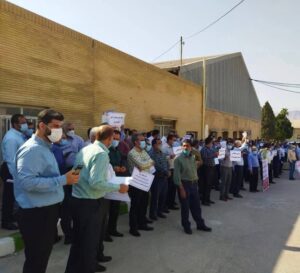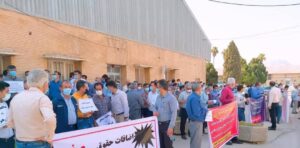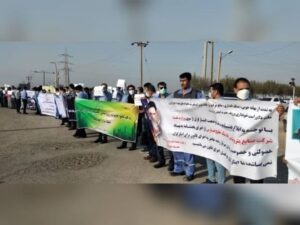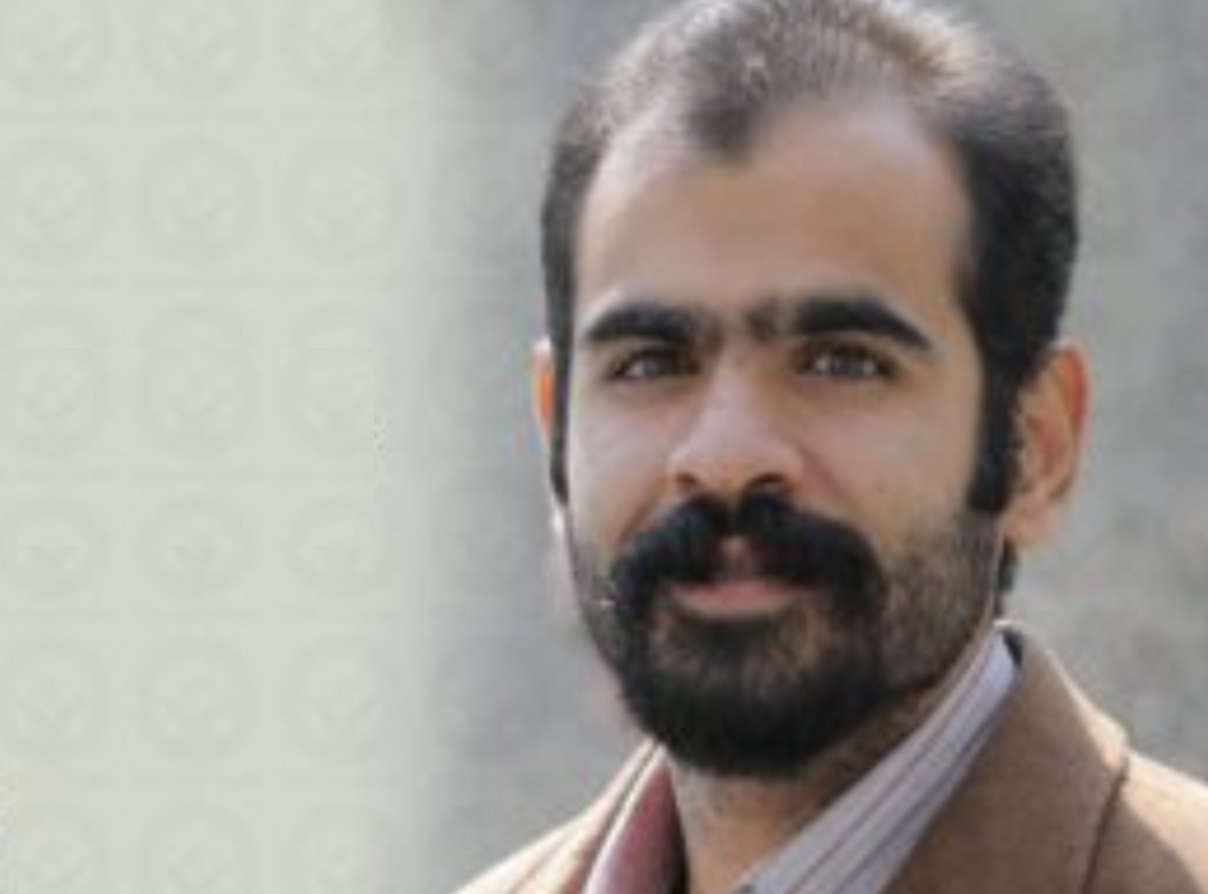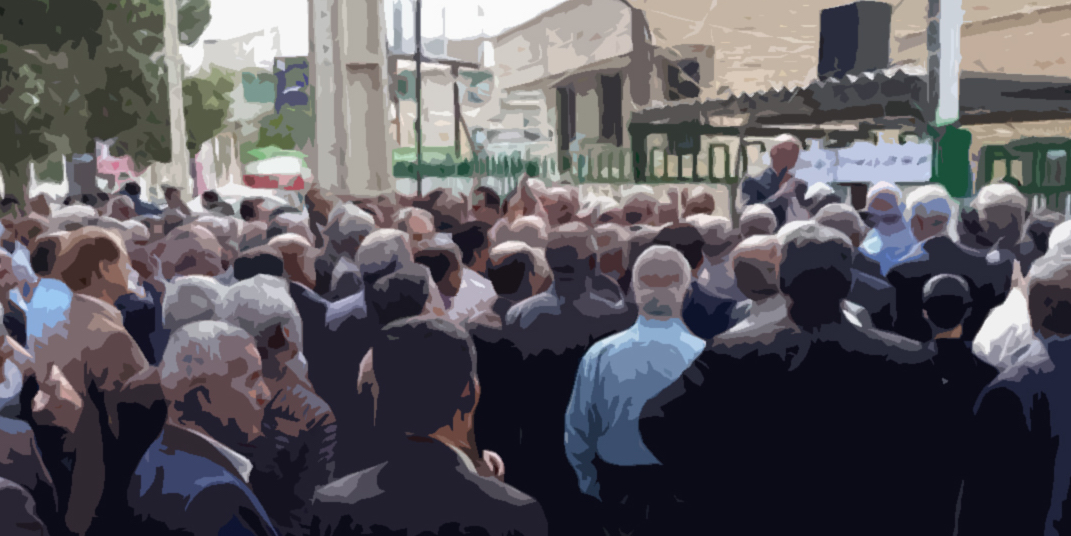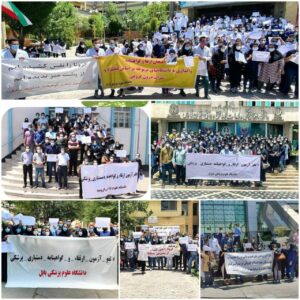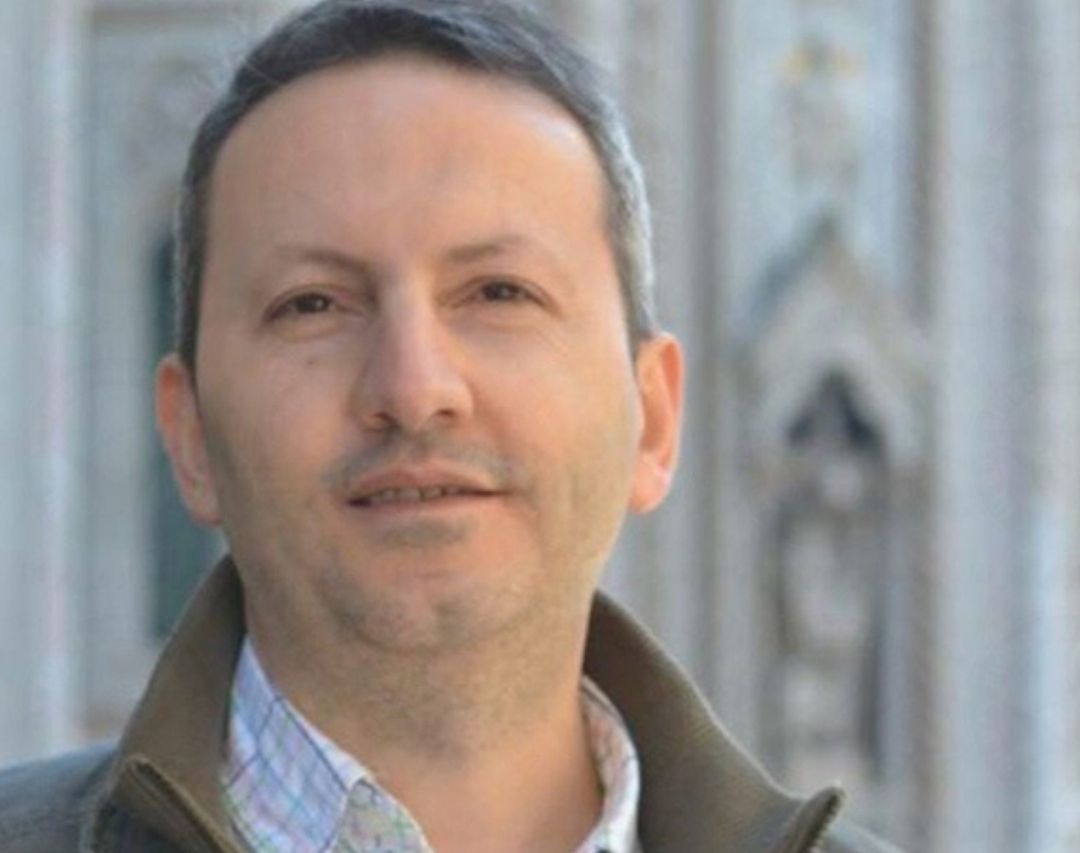Saturday, June 26
Following the nationwide strikes of contract workers of refineries, petrochemicals and power plants, workers of Rijal Petrochemical Complex located in Mahshahr Special Zone, workers of the ODCC working in Isfahan Oil Refinery, and workers of Phase 2 of Bidboland Gas Refinery of Behbahan (ODCC) joined the movement. Kerman ranchers, and political and civil activists of Tehran also held protest rallies.
ODCC workers in Isfahan:
Regal petrochemical workers in Bandar-e-Imam:
Political and civil activists in Tehran:
Ranchers in Kerman:
Sunday, June 27
Workers of Gamma Oil, Gas and Petrochemical Company in Jask terminal, workers of Sazeh Pod Company working in Bushehr Petrochemical Company, radiograph workers of Nima Azmoun Steel, Radiography Companies, Pishtazan Aria, and Pioneers of Fars Technologies working in Phase 2 of Abadan Refinery, went on strike and joined the “Strike” movement.
A number of other protests happened as well. A group of shareholders of Azerbaijan Automotive Industry Company (Azovico), several official employees of Shiraz Oil Refinery, a group of pest control workers of Haft Tappeh Sugar Company, retirees of the Isfahan Steel Company and Khuzestan Steel Company, Homa Airlines retirees, a group of teachers of Green Score Letter, a group of retired workers, ranchers in Isfahan, Yazd, Fars and Khorasan Razavi provinces, a group of Izeh Azad University students, several businesses in Iranshahr, and workers at truck-washing and disinfection sites all staged protest rallies to call on their demands be addressed.
Workers of Gamma Oil, Engineering and Construction Companies Association of Oil, and Gas and Petrochemical Company:
Bushehr petroleum workers:
Abadan refinery workers:
Shareholders of Azerbaijan Automotive Industry:
Parsian petroleum workers in Shiraz:
Pest control workers:
Retirees of the Isfahan Steel Company and Khuzestan Steel Company:
Homa Airlines retirees:
Teachers of Green Score Letter:
Ranchers of Isfahan, Yazd, Fars and Khorasan Razavi provinces
Retirees seeking social security:
Workers at truck-washing and disinfection:
Students of Izeh University:
Monday, June 28
East Azarbaijan Railway technical workers, a group of Isfahan farmers, bankrupted shareholders of Samen coin, and a group of MG car remitters, a group of truck drivers in Ardakan city went on strike to protest the non-fulfillment of their demands. Teachers at Green Score Letter also gathered in protest for the second day in a row.
Shareholders of Samen coin:
MG car remitters:
Technical construction workers of East Azerbaijan railway:
Green Score Letter teachers:
Isfahan Farmers:
Ardakan truck drivers:
Tuesday, June 29
Workers of Arta Energy Company working in Ardabil Petrochemical Company, workers of Andimeshk Power Plant, Lamerd Refinery workers and Lordegan Petrochemical Workers, Azad University professors, a group of Kaveh company shareholders, a group of servants and caretakers of Mashhad schools, a group of dermatology assistants of medical universities, a group of school teachers, a group of green resume teachers, and a number of medical students and physicians in different cities of the country, including Kerman, Hamedan, Kermanshah, Isfahan, Shiraz and Tehran, held protest rallies.
Andimeshk Power Plant employees:
Ardabil Petrochemical Company employees:
Lamerd Refinery workers:
Green Score Letter teachers:
University professors:
Physicians and medical students in different cities:
Kaveh company shareholders:
School janitors in Mashhad:
Dermatologists and assistants:
School teachers:
Wednesday, June 30
North Azadegan Oil workers, employees of Sepahan Isfahan Cement Factory, a group of retirees of the bus company, a group of taxi drivers in Saqez, a group of journalists, and a group of official employees of Gachsaran Oil and Gas Company held protest rallies.
Taxi drivers in Saqez:
Sepahan Isfahan Cement Factory workers:
Bus company retirees:
Journalists:
Gachsaran Oil and Gas Company employees:
Thursday, July 1
A group of employees of Persian Gulf Holding Petrochemical Companies, and retirees of Isfahan Telecommunication Company held protest rallies.





